August 21, 2018 •
Montana Contribution Limits Head to U.S. Supreme Court
Attorney James Bopp, Jr. has asked the U.S. Supreme Court to strike down Montana’s contribution limits, arguing they are an unconstitutional limit on free speech. Bopp was an attorney in the well-known Citizens United case, which led to the U.S. […]
 Attorney James Bopp, Jr. has asked the U.S. Supreme Court to strike down Montana’s contribution limits, arguing they are an unconstitutional limit on free speech.
Attorney James Bopp, Jr. has asked the U.S. Supreme Court to strike down Montana’s contribution limits, arguing they are an unconstitutional limit on free speech.
Bopp was an attorney in the well-known Citizens United case, which led to the U.S. Supreme Court ruling corporations cannot be prohibited from spending on elections.
Montana’s limits were struck down in 2012 and again in 2015, but the 9th U.S. Circuit Court of Appeals ruled last October the limits are constitutional.
The U.S. Supreme Court has not yet said if it will take up the case.
June 22, 2018 •
News You Can Use Digest – June 22, 2018
Federal: In Trump’s America, the Conversation Turns Ugly and Angry, Starting at the Top WRAL – Peter Baker and Katie Rogers | Published: 6/20/2018 The politics of rage that animated President Trump’s rise now dominate the national conversation, as demonstrated […]

Federal:
In Trump’s America, the Conversation Turns Ugly and Angry, Starting at the Top
WRAL – Peter Baker and Katie Rogers | Published: 6/20/2018
The politics of rage that animated President Trump’s rise now dominate the national conversation, as demonstrated during the debate over his immigration policy that separated children from parents apprehended at the border. Harsh discourse in American politics is not new, but rarely has the president himself set the tone from the top in the way Trump does. Christine Porath, a Georgetown University professor and author of “Mastering Civility,” said the current harsh climate was affecting people beyond politics, injecting itself into everyday life at home and work. “It seems like people are not only reciprocating, but we tend to stoop lower rather than higher – it’s really putting us in an unfortunate place,” said Porath.
Pence Turns VP’s Office into Gateway for Lobbyists to Influence the Trump Administration
Seattle Times – Michael Scherer, Josh Dawsey, and Anu Narayanswami (Washington Post) | Published: 6/15/2018
About twice as many companies and other interests hired lobbyists to contact the vice president’s office in Mike Pence’s first year than in any single year during the tenures of Vice Presidents Joe Biden and Richard Cheney. The approach has allowed Pence to emerge as a key ally for corporations inside the Trump White House even as the president vows to “drain the swamp.” Pence’s inner circle includes friends, donors, and former staffers who are among the lobbyists in regular contact with the vice president’s office. In several cases, the relationships are mutually beneficial, with lobbyists who have charged clients millions of dollars to access his office donating money to Pence-backed political causes.
Women Speak of Pervasive Harassment in DC Lobbying Culture
The Hill – Megan Wilson | Published: 6/19/2018
For K Street denizens, deals are often done over dinner or drinks, on business travel, or retreats. Much like Capitol Hill, the lobbying industry remains dominated by men, creating an environment where women say they are often subject to harassment and worse. Unlike in other industries, few women have been willing to come forward to talk about it. The Hill reached out to women on K Street, asking whether they had similar stories to those surfacing as part of the “Me Too” movement. More than a dozen women spoke about instances of sexual harassment or assault they say they have faced while working as lobbyists and political operatives, and in public relations.
Zinke Linked to Real Estate Deal with Halliburton Chairman
Politico – Ben Lefebvre and Nick Juliano | Published: 6/18/2018
U.S. Interior Secretary Ryan Zinke’s family is involved in a land deal with Halliburton Chairperson David Lesar, whose company does business with the Interior Department. A charitable foundation created by Zinke and run by his wife, Lola, is allowing a company co-owned by Lesar and his family to use a portion of its land in Whitefish, Montana, as a parking lot for the development. The Zinkes also own land on the other side of the development, and have long sparred with neighbors about their various plans for it. If the new hotel, retail stores, and microbrewery go through, real estate agents say, the Zinke-owned land next door would stand to increase substantially in value.
From the States and Municipalities:
Arkansas: Legislator-Graft Case Spotlights Arkansas Ethics-Law Flaws
Arkansas Online – Doug Thompson | Published: 6/18/2018
A lobbyist whose firm spent $3.5 million in Arkansas reported total legislator-related expenses of only $12,170 from 2010 to 2017, a comparison of his federal guilty plea and state ethics records show. Milton “Rusty” Cranford could spend up to 10 years in federal prison after pleading guilty to one count of federal program bribery. What changes the state Ethics Commission will recommend in light of events uncovered by federal investigators have not been determined, Executive Director Graham Sloan said. He said ethics laws leave reporting of lobbying and campaign expenses up to the entities involved, and the system relies on voluntary compliance, and people reporting noncompliance to the commission. Any change in that system would require new law, Sloan said.
California: ACLU Suit Targets Law That Bars Horn Honking at Protests
San Diego Union Tribune – Teri Figueroa | Published: 6/14/2018
When Susan Porter beeped her car horn in support of a political protest in San Diego last year, she quickly found herself pulled over and ticketed. According to the state vehicle code, horns are to be honked only for safety reasons or as part of a car alarm. Now, the American Civil Liberties Union of San Diego and Imperial Counties is asking a federal judge to find that state law unconstitutional, arguing in a newly filed lawsuit that preventing such honking chills free speech. The suit argues Porter is “censoring herself by refraining from using her vehicle horn for expressive purposes,” including supporting political rallies.
Colorado: Colorado Enacts Replacement Campaign Finance Enforcement System
National Law Review – Andrew Garrahan | Published: 6/19/2018
A federal court recently held that Colorado’s system for enforcing its campaign finance laws was unconstitutional. The secretary of state’s office has now enacted temporary enforcement rules, effective immediately. Under the new rules, any person may file a complaint, just like under the old system. But the rules now include three protections that attempt to prevent abuse of the system for political purposes. In addition to the enforcement changes, the new rules also establish a formal system for seeking advisory opinions on campaign finance issues.
Florida: A Persistent Gadfly Wins Again in the Supreme Court
WRAL – Adam Liptak (New York Times) | Published: 6/18/2018
The U.S. Supreme Court gave a civic activist in Florda another shot at proving his arrest at a city council meeting was in retaliation for his criticism of public officials. The court said it was ruling narrowly for Fane Lozman, whose battles with the Riviera Beach City Council had become legendary. It said a lower court had been wrong to stop his retaliation lawsuit. The case grew from an attempt to cut Logan off at a council meeting into a major free-speech showdown that carried nationwide implications for citizens arrested, as Lozman was, by government officials whom they criticize.
Georgia: Candidate for Georgia Governor Bought Condo from Lobbyist
New York Times – Kevin Sack | Published: 6/14/2018
A Republican candidate for Georgia governor reportedly bought an Atlanta condominium from a lobbyist at what appeared to be a discount. The New York Times, citing real estate records, says Lt. Gov. Casey Cagle purchased the condo 10 years ago at 24 percent less than its appraised value. It was bought from Terry Hobbs, a lobbyist who represents natural gas marketer SCANA. Cagle sold the condo last year at a 29 percent profit. As lieutenant governor, Cagle presides over the Senate and controls the flow of legislation there. Cagle said the sale was “a legitimate transaction” and Hobbs had not lobbied him on any issue around the time of the sale.
Kansas: Judge Slams Kobach for Flouting Court Rules
Politico – Josh Gerstein | Published: 6/18/2018
A federal judge permanently struck down Kansas’s proof-of-citizenship voter registration law, rebuking Kansas Secretary of State Kris Kobach, one of the country’s most vocal advocates of voter-ID laws. U.S. District Court Judge Julie Robinson said the state’s requirement that voters show proof of citizenship during registration violated both the Constitution and the National Voter Registration Act. Robinson struck down the law and ordered Kobach to take six additional hours of continuing legal education that “pertain to federal or Kansas civil rules of procedure or evidence.” In an earlier ruling, Robinson held Kobach in contempt for skirting court orders related to the law and failing to send postcards confirming registration for thousands of voters.
Kentucky: Kentucky Man Gets 30-Day Sentence in Attack on Senator Rand Paul
Reuters – Suzannah Gonzales | Published: 6/19/2018
U.S. Sen. Rand Paul’s neighbor was sentenced to 30 days in prison for tackling the lawmaker while he was out doing yard work at his Kentucky home. Paul, who suffered broken ribs, had hoped for a harsher penalty. He said in a statement that the 21 months in prison sought by prosecutors “would have been the appropriate punishment.” Rene Boucher pleaded guilty to assaulting a member of Congress in the attack. Boucher said he was triggered by Paul repeatedly stacking debris near their property line in Bowling Green and “lost his temper.” Boucher must serve a year of supervised release after the prison time, stay away from the Paul family, and pay a $10,000 fine.
Maryland: Candidate’s Relationship with Talk Radio Station Raises Questions About Campaign Finance
Baltimore Sun – Libby Solomon | Published: 6/18/2018
Nino Mangione’s family owns talk radio station WCBM 680. He is the station’s web manager. Until April, he even hosted a weekly, hourlong talk show. But Mangione is also running to be a state delegate, a situation one of his opponents said is problematic. “… He’s using his family-owned media platform to promote his own candidacy, and doesn’t seem to understand the conflict of interest involved,” said Justin Kinsey. Mangione said when the WCBM website posts stories about his campaign, it is just reporting the news, not advertising his campaign. Attorney Andy Levy said the relationship could potentially be considered an in-kind campaign contribution, subject to reporting requirements and limits.
Massachusetts: City Council Offers Own Lobbying Bill, Straying from Marty Walsh’s Proposal
Boston Globe – Milton Valencia | Published: 6/19/2018
Boston City Council members Michelle Wu and Michael Flaherty introduced a new lobbying ordinance. The proposal would require lobbyists and their clients to file notices with the city and pay an annual fee: $1,000 for a lobbyist and $500 for a client. They would have to file quarterly reports. A plan to reform the city’s lobbying law was proposed by Mayor Martin Walsh two years ago with a home rule petition that needed the state Legislature’s approval. Wu and Flaherty are proposing a local ordinance, which needs approval from only the council and mayor. But the versions are different enough to raise questions whether a deal can be reached on any changes to the city’s minimal lobbyist registration and disclosure requirements.
Ohio: Convicted Ohio Republican Businessman’s Company Targets Democrats
Philadelphia Inquirer – Julie Carr Smyth (Associated Press) | Published: 6/20/2018
Ben Suarez, an Ohio direct-marketer who was convicted of witness tampering in a campaign finance investigation, is organizing an operation to retaliate against the prominent Democrats he blames for putting him in prison. A memorandum lays out The Justice Association’s strategy for a lawsuit and ad campaign targeting U.S. Sen. Sherrod Brown, who is running for re-election this year, and former U.S. Attorney Steven Dettelbach, the Democratic nominee for state attorney general. It calls them “chief culprits” in a vast effort by Democrats to unjustly prosecute Republican-owned companies under former President Obama.
West Virginia: West Virginia Supreme Court Justice Indicted in Investigation He Initiated
Governing – Lacie Pierson (Tribune News Service) | Published: 6/21/2018
West Virginia Supreme Court Justice Allen Loughry, who wrote a book on political corruption in the state, was arrested by FBI agents and faces 22 charges alleging fraud, witness tampering, and lying to investigators. The indictment says Loughry used a state vehicle and credit card for personal use, including trips to visit family. It says Loughry also sought mileage reimbursements for trips even though he drove a state vehicle and used a government credit card for gas. He was accused of moving a leather couch and a valuable desk from the Supreme Court office to his home, and of lying to federal agents about his actions and trying to influence an employee’s testimony. Loughry has been suspended without pay.
Gov. Steve Bullock announced he will sign an executive order to further Montana’s goal of shedding light on dark money spending in elections. The executive order applies to new contracts for goods over $50,000 and new services contracts over $25,000 […]
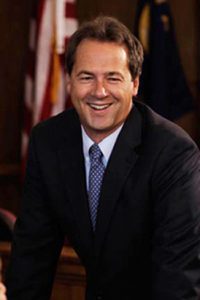 Gov. Steve Bullock announced he will sign an executive order to further Montana’s goal of shedding light on dark money spending in elections.
Gov. Steve Bullock announced he will sign an executive order to further Montana’s goal of shedding light on dark money spending in elections.
The executive order applies to new contracts for goods over $50,000 and new services contracts over $25,000 and requires government contractors who have spent more than $2,500 in the past two years in elections to disclose their donations.
The executive order aims to shed light on contributions not otherwise required to be disclosed.
Gov. Bullock will sign the executive order into law on June 8, 2018.
Before I can make a political contribution using my own funds, my employer requires that I obtain permission first. Can my employer legally do this? Yes, employers may require employees to seek preapproval before making personal political contributions. Not only […]
 Before I can make a political contribution using my own funds, my employer requires that I obtain permission first. Can my employer legally do this?
Before I can make a political contribution using my own funds, my employer requires that I obtain permission first. Can my employer legally do this?
 Yes, employers may require employees to seek preapproval before making personal political contributions. Not only can your employer require this, it’s smart business to do so. Employers may even require preapproval from family members of employees.
Yes, employers may require employees to seek preapproval before making personal political contributions. Not only can your employer require this, it’s smart business to do so. Employers may even require preapproval from family members of employees.
This preapproval requirement has evolved as a result of the increased number of jurisdictions enacting pay-to-play laws. A seemingly innocuous contribution by an employee could result in the loss of government contracts, fines, and a ban on future contracting. Criminal sanctions may apply when repeated violations occur. By requiring pre-approval, your employer can properly vet the contribution for compliance with a jurisdiction’s pay-to-play law, including disclosure requirements.
In a majority of jurisdictions, employees covered by pay-to-play laws include officers, partners, directors, senior management, salespersons, and their spouses and dependent children. In Pennsylvania and Kentucky, all employees are covered in the instance of a no-bid contract.
Requiring preclearance of employee personal political contributions is certainly more preferable than imposing a ban on employee contributions, which could result in a violation of applicable labor laws. Various jurisdictions bar employers from retaliating against employees for engaging in political activities, which can include everything from participating in a political rally to making campaign contributions. Even though an employer can require preapproval, an employer cannot directly or indirectly affect an individual’s employment by means of discrimination or threat of discrimination based on the individual’s personal political contributions.
Don’t miss Nola’s October 2022 LobbyComply Pod episode for more information on this important issue.
The 2018 elections are approaching quickly. Have you reviewed the restrictions on political contributions from your company’s lobbyists? It is important to know what restrictions are placed on lobbyists, such as when, how, or how much a lobbyist may contribute. […]
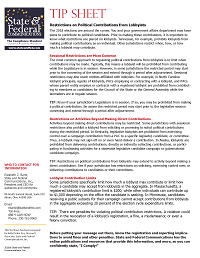 The 2018 elections are approaching quickly. Have you reviewed the restrictions on political contributions from your company’s lobbyists?
The 2018 elections are approaching quickly. Have you reviewed the restrictions on political contributions from your company’s lobbyists?
It is important to know what restrictions are placed on lobbyists, such as when, how, or how much a lobbyist may contribute.
Knowing state and federal restrictions will help your company remain compliant and could save you a lot of headaches.
State and Federal Communications is here to help you. Our newest Tip Sheet “Restrictions on Political Contributions from Lobbyists” will inform you on sessional restrictions, lobbyist contribution limits, and restrictions on activities beyond making direct contributions.
This new Tip Sheet will provide you with the key information to keep in mind as you continue your government affairs program.
Click here to get this FREE Tip Sheet today – and ensure you and your team can say “I Comply!”
Gov. Gary Herbert signed House Bill 320 this week, putting it into effect immediately. The bill expands the existing prohibition on contributions to legislators during a legislative session to also cover contributions to the lieutenant governor, attorney general, state auditor, […]
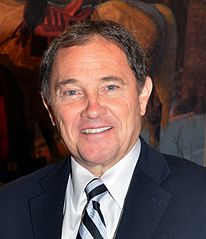 Gov. Gary Herbert signed House Bill 320 this week, putting it into effect immediately.
Gov. Gary Herbert signed House Bill 320 this week, putting it into effect immediately.
The bill expands the existing prohibition on contributions to legislators during a legislative session to also cover contributions to the lieutenant governor, attorney general, state auditor, and state treasurer.
The prohibition extends to contributions to the personal campaign committees and political action committees (PACs) of the covered candidates. Previously, only contributions to legislators were banned during sessions.
Parties prohibited from contributing during session include persons, lobbyists, principals, and political committees.
September 11, 2017 •
Campaign Finance Riders in House Financial Services Appropriations Bill
Several provisions added last week to the House Financial Services appropriations bill would alter some federal campaign laws. The legislation would prevent some charitable 501(c)(3) organizations such as churches from losing their tax-exempt status for making contributions to candidates. The […]
 Several provisions added last week to the House Financial Services appropriations bill would alter some federal campaign laws.
Several provisions added last week to the House Financial Services appropriations bill would alter some federal campaign laws.
The legislation would prevent some charitable 501(c)(3) organizations such as churches from losing their tax-exempt status for making contributions to candidates. The bill would also allow corporations greater latitude in soliciting employees to contribute to political action committees.
The riders to the bill also include provisions prohibiting the IRS from enacting rules governing political activity and prohibiting the SEC from implementing rules requiring corporations to report to its shareholders a corporation’s political campaign activities.
A further change to campaign finance law in the appropriation bill would bar the use of funds to recommend or require any entity submitting an offer for a federal contract to disclose specified political contributions as a condition of submitting the offer.
The appropriations and other finance bills are expected to be debated this and next week in the House.
September 6, 2017 •
Denver City Council to Consider Amending Campaign Finance Law
Denver City Council is attempting to close a loophole allowing campaign spending to go unreported if not coordinated directly with a candidate’s campaign. The measure would adopt the state definitions of independent expenditure and electioneering communication. It would also require […]
 Denver City Council is attempting to close a loophole allowing campaign spending to go unreported if not coordinated directly with a candidate’s campaign.
Denver City Council is attempting to close a loophole allowing campaign spending to go unreported if not coordinated directly with a candidate’s campaign.
The measure would adopt the state definitions of independent expenditure and electioneering communication. It would also require individuals or entities making independent expenditures to file a report within two days of spending more than $1,000, itemize all contributions received exceeding $25, and clearly identify the source of funding for any paid advertising.
If the bill passes, other changes to city campaign finance laws would include differentiation between issue committees and other political committees, as well as a requirement for quarterly reports in the calendar year before an election and additional reporting in the weeks leading up to an election.
Council has scheduled a final vote for Sept. 11.
June 6, 2017 •
Manitoba Election Law Amendments Receive Royal Assent
On June 1, the 2nd Session of The Legislative Assembly of Manitoba, which began on November 21, 2016, adjourned until October 4, 2017. Bill 26, the Election Financing Amendment Act received Royal Assent on June 1. The new law increases […]
 On June 1, the 2nd Session of The Legislative Assembly of Manitoba, which began on November 21, 2016, adjourned until October 4, 2017.
On June 1, the 2nd Session of The Legislative Assembly of Manitoba, which began on November 21, 2016, adjourned until October 4, 2017.
Bill 26, the Election Financing Amendment Act received Royal Assent on June 1. The new law increases the annual contribution limit for individuals from $3,000 to $5,000, and is indexed for inflation. Other changes to the law include limiting cash contributions to $25 or less, allowing self-employed persons to volunteer services for which they normally charge without the services being considered a contribution, and expanding the definition of “election communication” as applied to third parties to include communications about issues associated with a political party or a candidate. The law takes effect on September 1.
Lawmakers plan to adjourn the Assembly again on November 3, and then reconvene on November 15, with a final scheduled adjournment of the 2nd Session to be on December 1.
May 8, 2017 •
US Spending Bill Has Campaign Finance Provisions
Among the amendments in the 2017 Consolidated Appropriations Act that passed into law on May 5 are two provisions affecting campaign financing. House Resolution 244 explicitly prohibits the Internal Revenue Service from making new rules concerning the political speech or […]
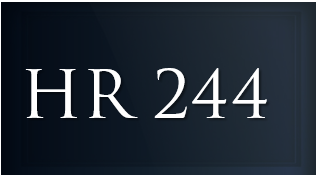 Among the amendments in the 2017 Consolidated Appropriations Act that passed into law on May 5 are two provisions affecting campaign financing.
Among the amendments in the 2017 Consolidated Appropriations Act that passed into law on May 5 are two provisions affecting campaign financing.
House Resolution 244 explicitly prohibits the Internal Revenue Service from making new rules concerning the political speech or activity of 501(c)(4) organizations. The legislation also prohibits the Securities and Exchange Commission from finalizing, issuing, or implementing any rule, regulation, or order regarding the disclosure of political contributions, contributions to tax exempt organizations, or dues paid to trade associations.
The 708 page omnibus spending bill, passed by Congress on May 4 and signed by the president on May 5, funds the U.S. government through September 30.
May 2, 2017 •
Montana Legislature Adjourns
The Montana Legislature adjourned the 2017 regular session April 28, 2017. House Bill 340, eliminating the Office of the Commissioner of Political Practices, made it through the House but was tabled in the Senate and did not pass. Senate Bill […]
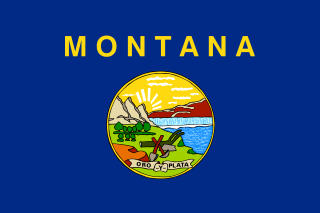 The Montana Legislature adjourned the 2017 regular session April 28, 2017. House Bill 340, eliminating the Office of the Commissioner of Political Practices, made it through the House but was tabled in the Senate and did not pass.
The Montana Legislature adjourned the 2017 regular session April 28, 2017. House Bill 340, eliminating the Office of the Commissioner of Political Practices, made it through the House but was tabled in the Senate and did not pass.
Senate Bill 368, increasing contribution limits for both individuals and political action committees and placing the Office of the Commissioner of Political Practices under the jurisdiction of the state Attorney General, passed at the last minute and will be sent to the Governor.
The Montana Legislature will pick up again in January 2019.
March 28, 2017 •
Kentucky’s Governor Signs Campaign Finance Bill
Gov. Matt Bevin approved changes to a campaign finance law yesterday, March 27, 2017. Senate Bill 75 doubles current contribution limits for individuals giving to candidates, state executive committees, and caucus campaign committees. The limit for individuals giving to PACs […]
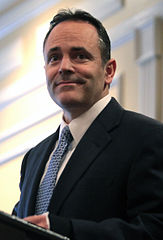 Gov. Matt Bevin approved changes to a campaign finance law yesterday, March 27, 2017.
Gov. Matt Bevin approved changes to a campaign finance law yesterday, March 27, 2017.
Senate Bill 75 doubles current contribution limits for individuals giving to candidates, state executive committees, and caucus campaign committees. The limit for individuals giving to PACs also increases from $1,500 to $2,000.
Contributions to candidates and PACs will be indexed for inflation every odd-numbered year based on the Consumer Price Index. The bill also creates a single reporting threshold of $3,000 for campaign finance reports.
The bill is effective June 28, 2017, or 90 days from adjournment sine die of the regular session of the Legislature.
March 28, 2017 •
West Virginia Campaign Finance Bill Passes Senate
On March 27, the West Virginia Senate voted to approve a bill to overhaul campaign finance laws. Senate Bill 539 will raise campaign contribution limits to allow individuals to donate up to $2,700 to candidates for statewide office per election […]
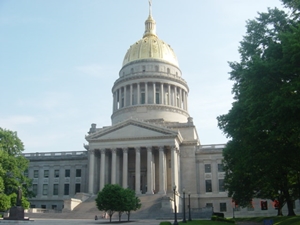 On March 27, the West Virginia Senate voted to approve a bill to overhaul campaign finance laws.
On March 27, the West Virginia Senate voted to approve a bill to overhaul campaign finance laws.
Senate Bill 539 will raise campaign contribution limits to allow individuals to donate up to $2,700 to candidates for statewide office per election cycle. Individuals would also be able to contribute up to $5,000 to PACs per year and $10,000 to state parties and caucus campaign committees per year.
The bill also proposes changes to disclosure requirements, allowing citizens to donate up to $1,000 to certain PACs that do not donate to individual candidates or their committees before the donor’s identity must be disclosed.
The bill now moves to the House for consideration.
February 22, 2017 •
Appeals Court Upholds Provisions of Senate Bill 571
The U.S. Court of Appeals for the Sixth Circuit reversed a U.S District Court’s decision to issue a preliminary injunction against provisions of Senate Bill 571, which enables corporations to deduct PAC contributions from employees’ paychecks while prohibiting labor unions […]
 The U.S. Court of Appeals for the Sixth Circuit reversed a U.S District Court’s decision to issue a preliminary injunction against provisions of Senate Bill 571, which enables corporations to deduct PAC contributions from employees’ paychecks while prohibiting labor unions from doing the same.
The U.S. Court of Appeals for the Sixth Circuit reversed a U.S District Court’s decision to issue a preliminary injunction against provisions of Senate Bill 571, which enables corporations to deduct PAC contributions from employees’ paychecks while prohibiting labor unions from doing the same.
Ultimately, Sixth Circuit Judge Jeffrey Sutton relied on similar cases stating “absent a burden on a constitutionally cognizable right, the government may regulate what is at best a speech-facilitating mechanism.” Michigan State AFL-CIO v. Schuette, No. 16-2100, at *8 (6th Cir., Feb. 9, 2017).
State and Federal Communications, Inc. provides research and consulting services for government relations professionals on lobbying laws, procurement lobbying laws, political contribution laws in the United States and Canada. Learn more by visiting stateandfed.com.


